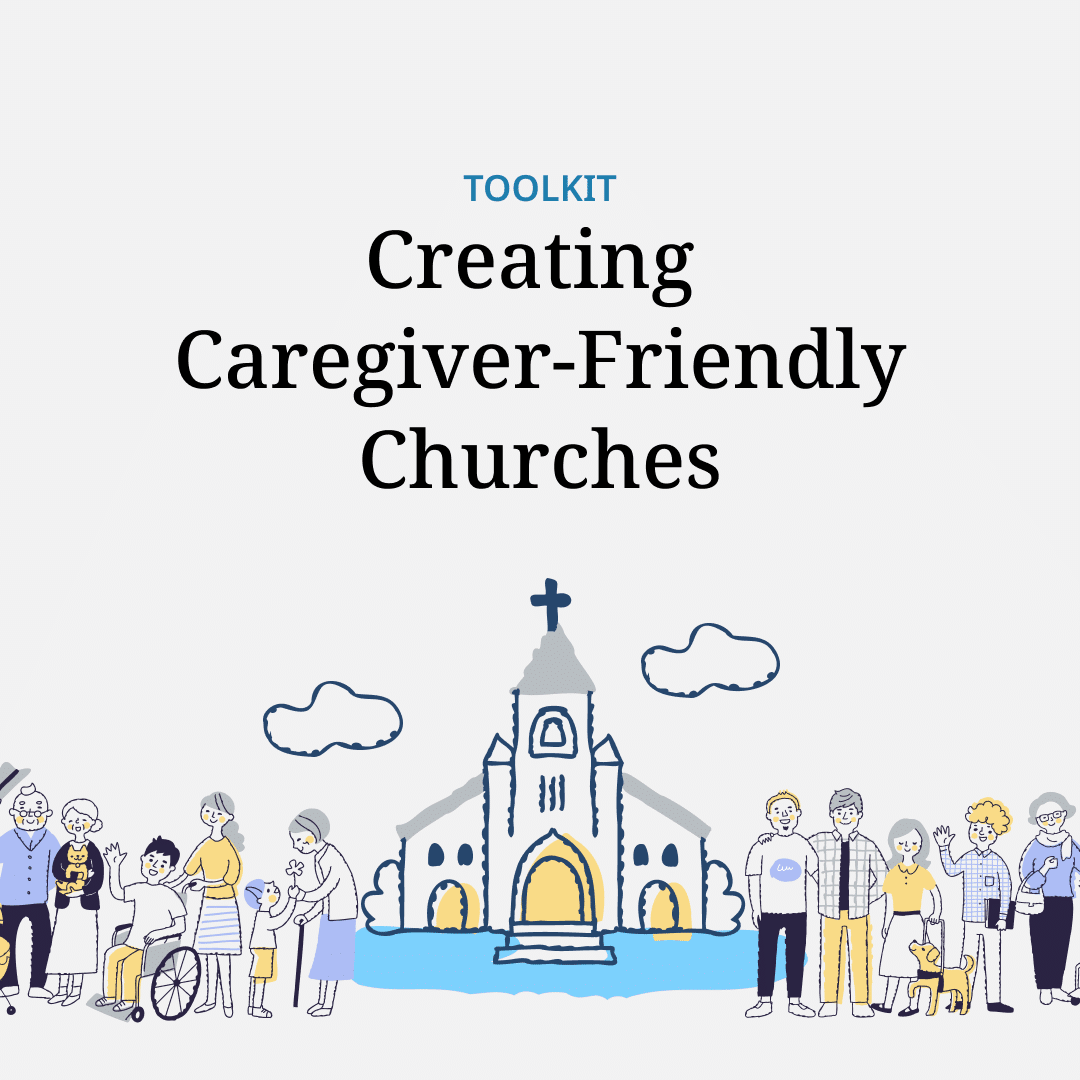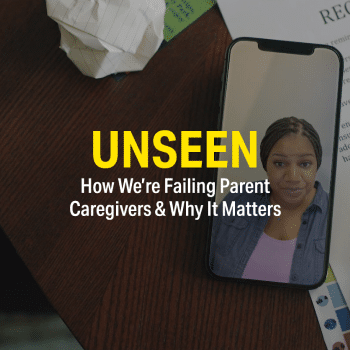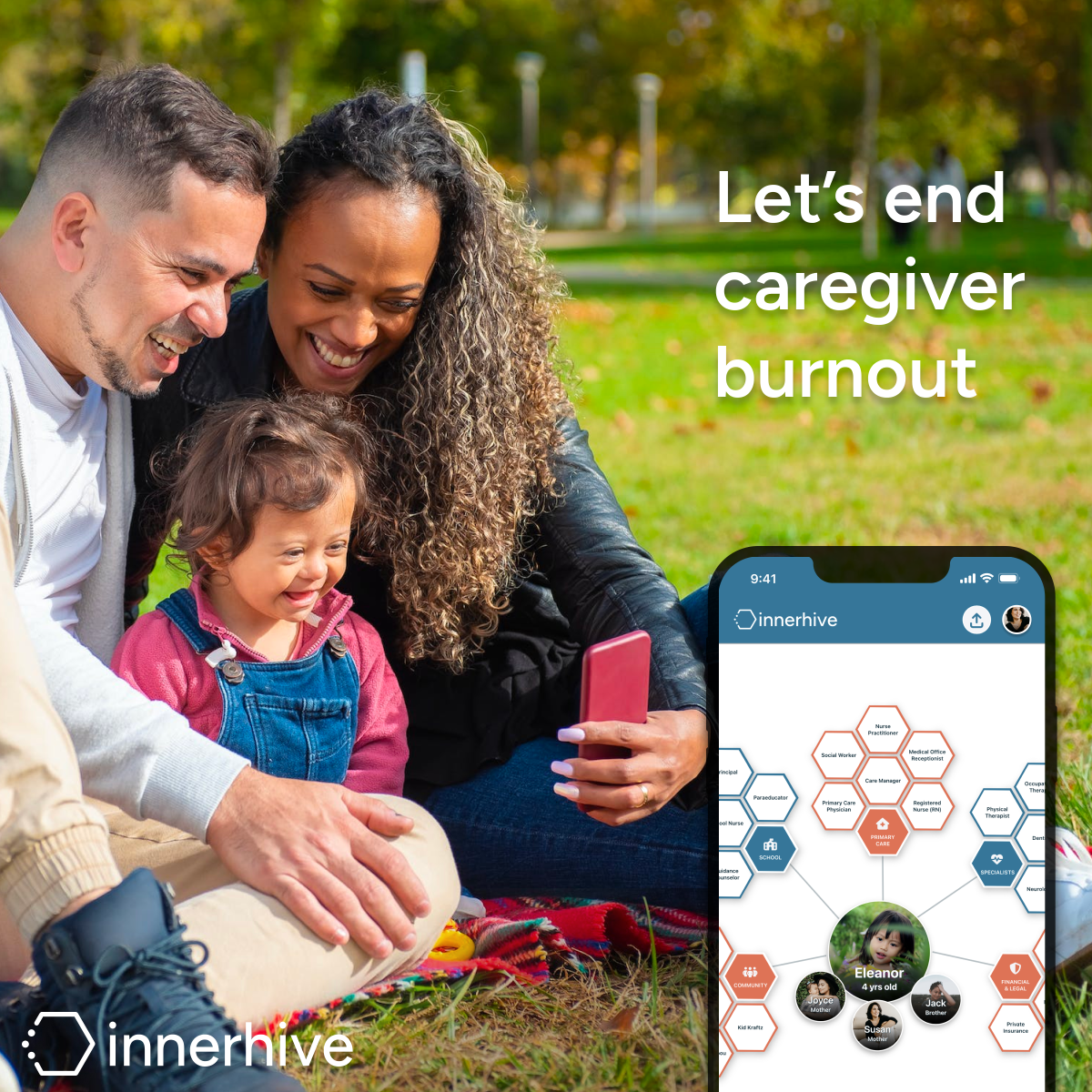
Explore the Caregiver-Friendly Faith Communities Toolkit
Learn how faith communities can support caregivers by fostering a culture of care, accessibility, and practical assistance.
Caregiver-Friendly Faith Communities Toolkit
Presented by

Much of the work of caregiving is invisible. It happens at home, often in private, and because of this, non-caregivers in the community probably don’t think about it very often. Yet 75% of caregivers report that they pray regularly to cope with the demands of caregiving, suggesting a strong need for spiritual support and open acknowledgement of their struggle. Faith communities have a unique opportunity to support the spiritual and practical needs of caregivers.
The work of caregiving isn’t often discussed openly, even though many people will act as a caregiver at some point in their lives — whether it is as a parent caring for a child, an adult caring for an aging parent, or a friend helping another friend in need. Creating a culture of care — where the highs and lows of caregiving are talked about honestly and supported — will go a long way in helping to recognize this underserved population in the religious community.
Creating a culture of care starts at the top. By highlighting the needs of caregivers and bringing relevant issues to the forefront, leaders have the ability to decrease the stigma and reduce stereotypes attributed to caregivers and those they care for. Explore the following list of practices you can incorporate to create a culture of care that contributes to caregivers feeling seen and supported.
Did you know that National Caregivers Day happens on the third Friday of February each year? Or that November is the National Family Caregivers Month? Help your caregivers feel less invisible by taking the time to recognize them, similar to how mothers and fathers are honored every year. Consider creating a special sermon, message or program just for them to highlight the importance of their hard work and sacrifice.
The church has long been a strong supporter of the family unit. Don’t forget that caregivers are part of families, too. Address caregivers and their loved ones in the same way you would discuss other family dynamics. This will serve to remind people that caregivers exist and also reinforce the idea that they are an important part of family life.
Hosting a screening of the UNSEEN documentary is a great way to “see” caregivers and validate the challenges they face, while educating your community on the issues.
Missions are an essential act of service for many churches and faith organizations. A great way to demonstrate your support for caregivers is to help fund or volunteer at local/national caregiver-related organizations as a group. There are lots of organizations dedicated to improving the lives of caregivers, and they need help, too! By working with caregiver organizations, you are highlighting the importance of serving caregivers, which in turn increases their visibility and standing within your community.
Looking for a place to start? Check out our partner, Spreading Sunshine!
Caregiving takes hard work and sacrifice, and it’s really important for everyone to acknowledge this. Be sure to check in individually with your caregivers on a regular basis and ask them how they’re doing. Let them know that you see them and that they aren’t alone. You need to stand beside your caregivers, not in front of them.
Historically, women have taken on the bulk of care work. But all people of faith are called to serve one another. Caregiving — whether for children, elderly family members, or others in need — should be seen as a shared responsibility and privilege. By breaking down stereotypes around caregiving, you can foster communities where everyone contributes to the well-being of others. Be sure to recognize ALL caregivers, men and women, for the incredible difference they make in the lives of those they care for.
Caring for others is what makes us human, and stories are what connect us to each other. Demonstrate your high regard for the incredible caregivers in your church by sharing their stories through media, missions, and ministry. Not only will it prove that you understand their value, it will also foster empathy for caregivers in the hearts of others.
Caregiving is full of many ups and downs. You never know when a caregiver is going through a tough time. It’s essential to teach your congregation to always be sensitive to caregivers and not accidentally minimize their experience. Check out the “Say This, Not That” guide for examples of what to say to avoid alienating your caregivers.
Here are ways you can get started:

Learn how faith communities can support caregivers by fostering a culture of care, accessibility, and practical assistance.

The “Unseen” documentary gives an unfiltered, honest glimpse into the lives of caregivers and their families.

Spreading Sunshine brings joy to families impacted by childhood illness by sending care packages to children and providing support to the entire family.

Designed for families and care teams, the Innerhive app serves as a central hub of caregiving tools, resources, and community.

Sign up to get notified about upcoming screenings, new bonus content releases, and get a 10% off coupon for our mech store!